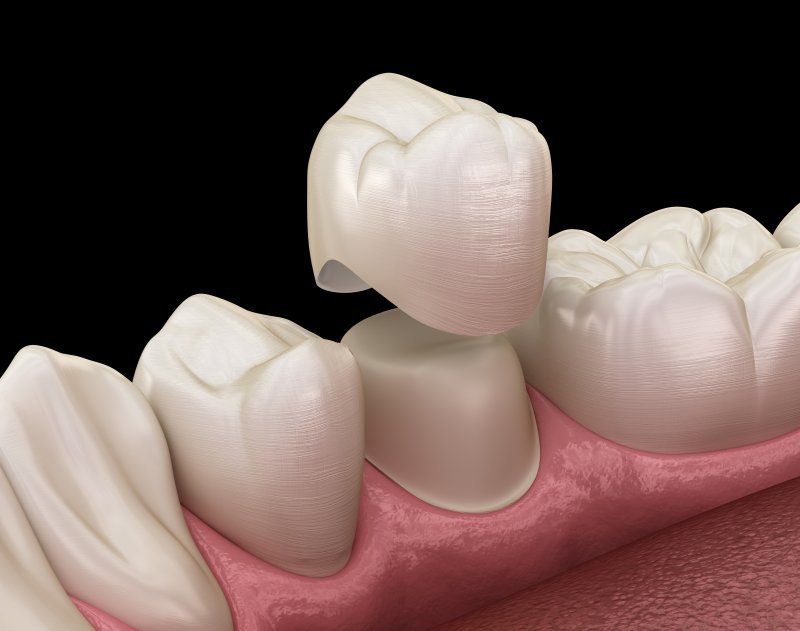
Dental crowns are remarkably versatile and effective dental treatments. Whether you’re recovering from a root canal, or just looking to improve the look of your smile, dental crowns can give you comfort and confidence that you may not have had for years!
In the days after your dental crown placement, you’ll have to do a little bit of aftercare to ensure that you heal up properly. If you’re getting one soon, here’s what that’s probably going to entail.
Recovering from Anesthesia
Most dentists will make use of a local anesthetic during a dental crown procedure, so you’ll spend a few hours after having your crown placed not being able to feel your mouth.
While this is happening, you’ll be at an increased risk of accidentally biting your cheek or tongue, or of burning your mouth without realizing it. For the first few hours after your procedure, you ought to refrain from eating anything too chewy, or that could burn your mouth.
Recovering from Sensitivity
There may also be some bruising or inflammation around the dental crown, which is perfectly natural. The dental cement in particular can inflame the gums for a while after the procedure. This discomfort will fade on its own after a few days to a week.
In the meantime, there are quite a few things that you can do to ease any discomfort you may be feeling. Usually, over-the-counter pain relief will be enough, but there are also ointments designed specifically to ease irritation from dental crown placement.
It might take a little time to get used to how your new dental crown fits in your mouth, but after a few days, it should feel perfectly natural.
What Can I Eat with My Dental Crown?
As was mentioned previously, you should avoid foods that can damage your mouth while it’s still numb. You should also take care around sticky foods that could pull your crown off while the cement is still hardening.
However, once the numbness wears off, there shouldn’t be any dietary restrictions. Your dental crown is designed to be as close to your natural tooth as possible, so biting and chewing should be no problem. Just take care of your dental crown the way you would any other tooth; brush and floss it every day, and see your dentist biannually so that they can check on them.
About the Author
Dr. Tonie Lewis has been working in dentistry for over 15 years, and her passion for her field grows every day. She prides herself on being able to offer her patients the highest quality of dental care with a gentle touch. Dr. Lewis graduated from the Howard University College of Dentistry, where she received both the Community Dentistry Award and the Academy of Esthetic Dentistry Award for her academic achievement.
If you have any questions about dental crowns, she can be reached at her website or by phone at (972) 954-9728.
